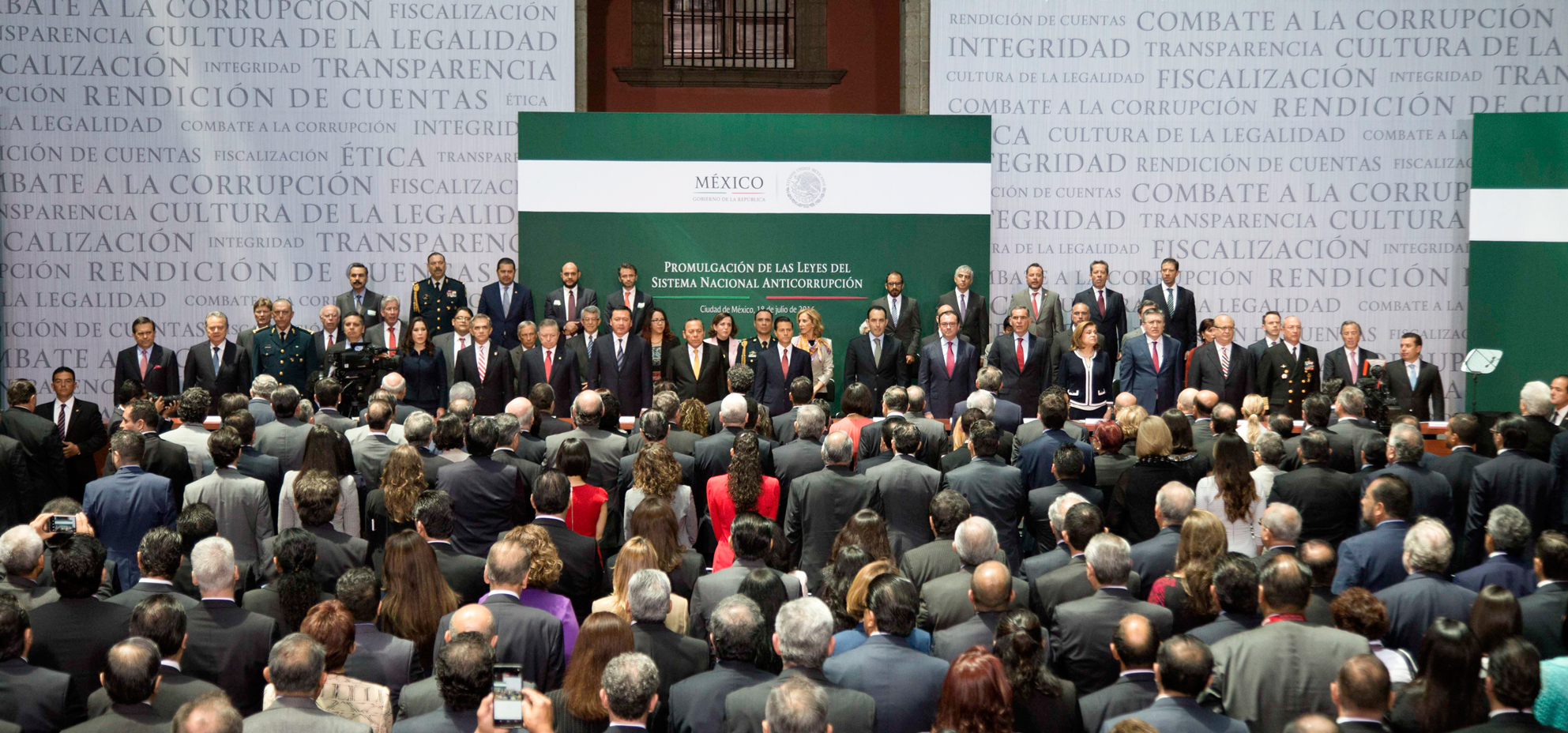As a result of the joint efforts of civil society, academia, the private sector and legislators, Mexico has a National Anticorruption System for the first time in its history.
The constitutional amendment that created the National Anticorruption System as a forum for coordination between the authorities of all orders of government was published on May 27, 2015.
During the Extraordinary Period of the LXII Legislature, seven secondary legislation packages were passed to prevent and fight corruption.
- General Law on the National Anticorruption System.
* This provides the basis for coordinating the SNA at the federal and local level as well as the characteristics of the National Control System and the National Digital Platform.
- General Law on Administrative Responsibilities.
* This establishes the administrative responsibilities and obligations of public officials, to submit declarations on their assets, conflicts of interest and taxes.
- Law of Control and Accountability of the Federation, as well as amendments to the Law of Fiscal Coordination and the General Law of Government Accounting.
* This strengthens the capacity of the Chief Audit Office of the Federation to fight corruption.
- Amendments to the Organic Law of the Federal Court of Administrative Justice.
* The Federal Court of Fiscal and Administrative Justice becomes the new Federal Court of Administrative Justice, which will now be able to sanction both public officials and private individuals for grave offenses.
- Amendments to the Organic Law of the Attorney General’s Office.
* These reate the Special Prosecutor’s Office for Combating Corruption, as an autonomous body for investigating and prosecuting acts of corruption.
- Amendments to the Federal Penal Code.
*These establish the sanctions that will be applicable to those who commit acts of corruption: public servants and private individuals.
- Amendments to the Organic Law of Federal Public Administration.
* These strengthen the Public Administration Secretariat’s capacity to prevent and fight corruption
RELEVANT ASPECTS
Coordination
- The SNA coordinates social actors and authorities at different levels of government, to prevent, investigate and punish corruption.
- A coordinating committee, headed by a citizen has been created; there will also be a Committee for Citizen Participation (with five members), selected by renowned academics.
Prevention
- The SNA has several mechanisms designed to prevent acts of corruption:
- Ethics codes, action protocols and self-regulatory mechanisms.
Control
- The SNA establishes various instruments that enable clear, effective accountability:
- The National Digital Platform, comprising the system of assets development and declaration of interests; the National System of sanctioned public servants and individuals; the National Control System; the directory of public servants involved in public procurement; and public complaints about administrative misconduct and acts of corruption.
Sanction
- The General Law on Administrative Responsibilities defines the acts or omissions that may be committed by both public servants and private individuals:
- Serious Administrative Offences (Jurisdiction of the Federal Court of Fiscal and Administrative Justice), Minor Administrative Offences and Acts of Individuals linked to Serious Administrative Offences.
The Enactment of the Laws of the National Anticorruption System confirms the government’s commitment to preventing and fighting corruption, transparency and accountability.
